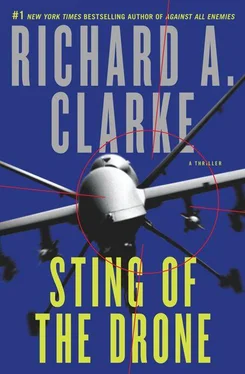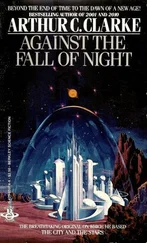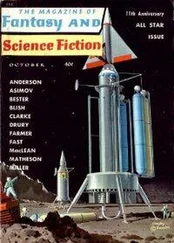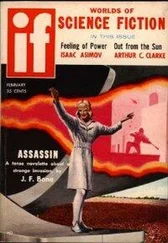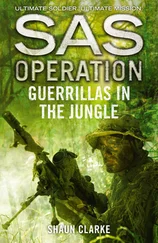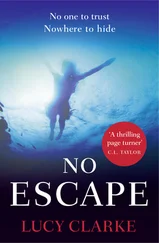Everyone stood.
“Friend, Ghazi, walk with me,” Qazzani summoned as he headed for the door. The two men crowded into a small elevator with the guard who had patted Ghazi down earlier. In the basement garage a white step van waited, its rear doors open. Inside, Ghazi could see that the van had been converted into a little room of red carpets and green pillows. The guard lifted Qazzani into the van and strapped him into a seat on the floor. Ghazi sat next to him and the van began to move up a ramp and onto a street, one in which people were not walking, vendors were not selling, people not watching. The van had good suspension, but Ghazi could still feel the bumps through the rugs, through to the bones in his cheeks.
“Ghazi Faqir Nawarz, a man should always leave enough gold aside for his wives, for his boys, for dowries, in case he may be called by Allah. And Allah, he may call at any time. Your father left his gold with me for safekeeping. Now it is yours. I will understand if you just want to take it and go back to your life in Canada.” Qazzani took hold of both of Ghazi’s hands and squeezed them. “Are you sure you want to do this mission? If you do, I will add one rupee for every one your father left with me for you.”
“ Janab, the message I sent you was sincere. I asked for a mission to avenge my father. He gave me everything I have, everything I am,” Ghazi replied. “I may seem like a Westerner to the others, but I still hold with many of the traditions. When a man murders my father, I must avenge the death. And with this way of revenge, I can also stop the drones, which are unnatural, a sin against Allah.”
The old man stroked his beard, which he kept black with a dye that Ghazi could now see had clumped in places. “I make honey at my farm, Ghazi. I have many drones, but they do not sting. Drones in nature do not sting. These American drones sting with a lethal venom. They are unnatural. They must be stopped.”
He placed his hand in the hand of the younger man as they sat together. “Ghazi, I know about these Ukrainians. Your father told me about them, what you have done with them. I don’t understand it all, but I understand that with the computers, you have become a rich man. Tell the Ukrainians if they help you stop the American bees from buzzing us and if they help with the operation in America, they can take over the distribution of the poppy paste in Europe.”
“That is a high price to pay for vengeance, Janab, ” Ghazi replied.
“Ghazi, with your father gone, you are now my son and I can tell you things that I cannot share with the others,” Qazzani said, no longer sounding like the old man in the meeting. His voice was different. No longer the sage who talked in riddles, he began to sound like the CEO he was. “Your father ran Europe for us, but the men killed with him, his deputies, were the ones who were trained to take over if something happened to him. The men I have there now are not up to the job. In time, the Russians will move in and take over our markets. So what we offer the Ukrainians is a wasting asset. They don’t know that yet.”
The truck began to pick up speed as they left the city. “By attacking their drones, you will distract the Americans and make us safer. Then when the bombs go off in their cities, Qaeda and the Taliban will tell them that the bombs will continue until the foreigners all leave Afghanistan completely. The American people will agree, they are weary of war. After they bomb Qaeda and the Taliban some more for revenge, they will go. This time, they will all actually leave.”
Rashid Qazzani smiled for the first time since Ghazi had been with him that night. “And when the Americans finally leave, it will not really be the Taliban who take over, it will not be Qaeda. Ghazi, it will be us. We will have all the money we need to do it. We have all the growers. They do not want the Taliban in charge. When they were, last time, they stopped the farmers from making the paste from the poppies. But when the Americans finally leave, the drones must stop, too. We cannot have these pilots from their Sin City hitting our people here and in Afghanistan. So while Bahadur’s operation will convince the Americans that the price of keeping their soldiers in our part of the world is too high, you will convince them that using the drones must also stop.”
“I understand, Janab, and I will stop the drones. And I will help Bahadur. But, Janab, why did the Americans kill my father and his men in Europe? Not because of the drugs. They must have known what they were planning to do for al Qaeda.”
Qazzani looked into Ghazi’s eyes, probing them. “You are a wise man, Ghazi. Your father was very proud of all the money you made stealing with the computers. He wished you had brought him grandchildren, but he was very proud of his Canadian son.”
* * *
The van stopped abruptly and one rear door opened. “Ghazi, this time there must be no connection to us. Make it look like the ISI is going after the drones. Some of the ISI will help you. And Bahadur will leave a trail from the bombings to Qaeda. Not to us. Not this time.”
Ghazi stared back at the old man. “I will do this, Janab, but not for the extra money, for my father.”
“I feel like the falconer who launches two birds to attack the target. You, Ghazi, and Bahadur are my two attack falcons. I trust you both and you may trust each other, but Ghazi, trust no one else. The Americans would not have killed your father in Vienna, of all places, unless they knew what he was planning. Somewhere, my son, there is a traitor. I will find him and he will die a slow death, but until then, be very careful.”
“ Shab bakhair, ” Qazzani said in parting. Ghazi stepped out of the van onto an empty road. The van pulled away. In the dark, under the tree, Ghazi could see his Kawasaki. It had been moved from the alley while they were meeting. Qazzani was always thinking several steps ahead, moving pieces on the board while eyes were elsewhere.
Qazzani’s bodyguard moved next to the old man on the floor of the van. “Tell them I will be there shortly and tonight I want a younger one, no hair,” he admonished the guard. The bodyguard removed a mobile from his pocket and inserted a battery. In less than three minutes, he had placed the request, and then removed the battery again and slipped the mobile back into its leather case in his pocket. That was time enough.
Eight kilometers west and five kilometers up, the mobile’s signal triggered a response in an unarmed black object flying quietly in the night. The caller’s number was known. He was a man associated directly with Rashid Qazzani. The small drone dove, sped up, and activated its night vision camera. The onboard computer calculated that the mobile was moving at eighty kilometers an hour off to the east. Just before the mobile shut down, the computer targeted the camera to look at all vehicles heading north within a hundred-meter strip on the highway. There was only one. Its image was recorded. Its license plate imaged. Its route tracked.
The information was bounced to a satellite and then down to a server, for when it might be needed. Then the black bird resumed its patrol.
TUESDAY, JULY 14
THE NATIONAL SECURITY ADVISOR’S OFFICE
THE WEST WING, THE WHITE HOUSE
WASHINGTON, DC
She could no longer pretend. Sandra Vittonelli had to admit to herself that she could no longer wait until after the meeting. She would, after all, do better in the meeting with the National Security Advisor if she weren’t squirming. Moreover, Burrell had not yet shown up.
His waiting area consisted of two chairs stuffed among three secretaries in his outer office. “We make most people wait in the West Wing lobby, but you can just sit here with us,” one of his secretaries had said. “After all, you’re one of us.” Sandra vaguely remembered the woman, maybe Rhonda, from the seventh floor at CIA Headquarters, but now she was in the West Wing working for Dr. Winston Burrell, the President’s alter ego on foreign policy, defense, and intelligence issues.
Читать дальше
